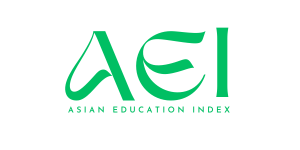National University of Uzbekistan named after Mirzo Ulugbek Jizzakh branch
Keywords:
globalization, education modernization, pre-educational and educational policy, development of educationAbstract
Recently, a whole range of challenges have arisen in relation to education. This was influenced by the introduction of new technologies, the emergence of new professions and the departure of old professions, as well as the increasing influence of information flows, competition, the growth of the formation of lifestyles, as well as the very goals of education. That is, in this case, education has entered the position when it has ceased to suit everyone. For example, if under the Soviet Union everyone sought to educate their children and in the absence of a diploma of higher education it was practically impossible to work anywhere, then in the modern world it is very important to educate not an educated, but an independent person. And in most cases, we can observe how teenagers are already starting to earn a lot of money through social networks, without having any education yet. And in order to recreate the popularization of education, it is necessary to introduce globalization into education through modern methods.
References
Bashirov T.A., Nafikova A.And. Globalizational empirereferences 2015. №22. C.14-21.
Globalism. International ApostilleM.; SPB. New York, 2006. S. 256.
Arakelov A.V., Aliyeva M.F.System of education in conditions of globalization / / Journal of ASU, 2014. №4. S.17-23.
Meadows A.A. Education in extravehu globalization:dialectics perspective and risk // contemporaneously, the problem of Asbaengine Sciences and education. 2015. S.27-37.
Mukhametzyanova F.G., Yarulina A.Sh., Wafer V.R., Biserova G.K. Phenomenon subjects student how the indicator integrations psychology and pedagogy / / integration education. 2013. № 1 (70). S. 47-52.
Downloads
Published
Issue
Section
License

This work is licensed under a Creative Commons Attribution-NonCommercial 4.0 International License.
User Rights
Under the Creative Commons Attribution-NonCommercial 4.0 International (CC-BY-NC), the author (s) and users are free to share (copy, distribute and transmit the contribution).
Rights of Authors
Authors retain the following rights:
1. Copyright and other proprietary rights relating to the article, such as patent rights,
2. the right to use the substance of the article in future works, including lectures and books,
3. the right to reproduce the article for own purposes, provided the copies are not offered for sale,
4. the right to self-archive the article.













